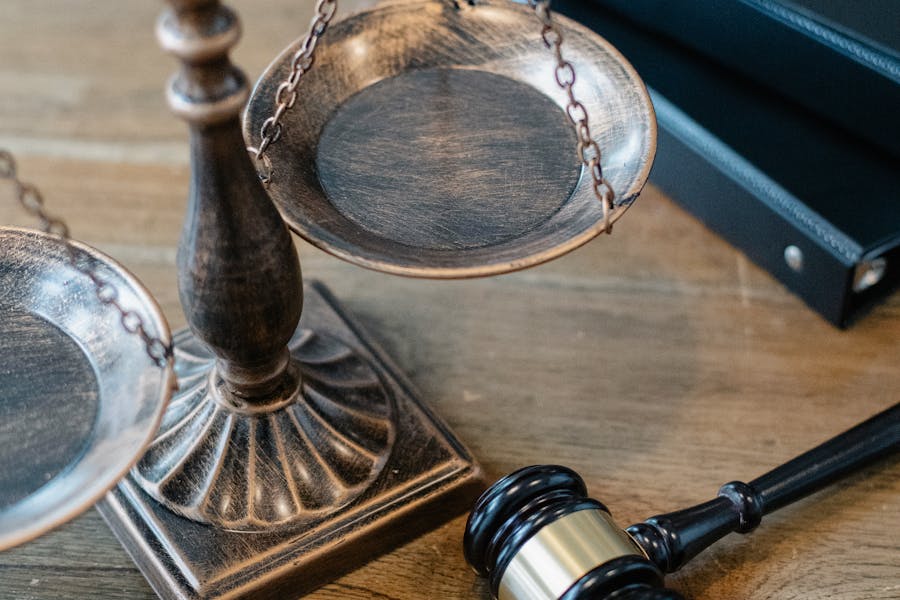
Every military operates within its own legal universe. From battlefields to barracks, laws regulate conduct, discipline, and justice. Yet one question often sparks curiosity: which division is responsible for enforcing military law? Behind every investigation, prosecution, and conviction in the armed forces stands a specialised unit designed to uphold order without undermining command integrity.
Military law differs from civilian law because soldiers, sailors, and airmen serve under unique codes, like the Uniform Code of Military Justice (UCMJ) in the United States or equivalent statutes elsewhere. Enforcement requires a division equipped with investigative authority, forensic capability, and legal expertise. Its purpose is to ensure accountability, protect rights, and maintain morale.
Typically, this enforcement duty rests with a Criminal Investigations Division (CID) or its service-specific counterpart, such as the Naval Criminal Investigative Service (NCIS) for the Navy or the Office of Special Investigations (OSI) for the Air Force. These agencies work hand-in-hand with the Judge Advocate General (JAG) corps to ensure that military offences are investigated impartially and prosecuted lawfully.
This comprehensive guide explores the enforcement of military law — detailing its history, purpose, jurisdiction, structure, procedures, and global significance. Through seven clear, SEO-optimised outlines, it answers every “why,” “when,” “how,” and “who” behind the system that upholds justice and discipline within the armed forces.
Which division is responsible for enforcing military law?
The division responsible for enforcing military law is the Criminal Investigations Division (CID) or its equivalent, such as NCIS for the Navy and OSI for the Air Force. These specialised branches investigate serious crimes under military codes, gather evidence, and coordinate with the Judge Advocate General (JAG) for prosecution through courts-martial or disciplinary action.
Division Responsible for Enforcing Military Law and Discipline
In the modern armed forces, maintaining discipline demands a robust legal backbone. Each branch’s investigative arm plays this crucial role — in the U.S. Army, it’s the Criminal Investigations Division (CID); in the Navy, the Naval Criminal Investigative Service (NCIS); and in the Air Force, the Office of Special Investigations (OSI). Together, they form the core agencies that uphold justice and integrity across the military. the Navy, the Naval Criminal Investigative Service (NCIS), and in the Air Force, the Office of Special Investigations (OSI). Together, these divisions form the primary mechanism ensuring that serious offences by service members are handled justly.
These divisions aren’t typical police units. They investigate felonies—murder, sexual assault, espionage, corruption, or major theft—committed by military personnel. Minor infractions remain with local commanders or military police, but crimes threatening morale or national security go straight to the investigative division. Each operates under strict protocols aligning with the Uniform Code of Military Justice (UCMJ) or its national equivalent.
Structurally, these agencies sit high within their respective branches, often reporting directly to senior leadership. Independence is crucial; investigators must remain free from undue command influence. Their authority spans gathering evidence, interviewing witnesses, securing crime scenes, and referring cases to JAG prosecutors.
In the modern armed forces, maintaining discipline demands a robust legal backbone. Each branch’s investigative arm plays this crucial role — in the U.S. Army, it’s the Criminal Investigations Division (CID); in the Navy, the Naval Criminal Investigative Service (NCIS); and in the Air Force, the Office of Special Investigations (OSI). Together, they form the core agencies that uphold justice and integrity across the military.
As pedro paulo business consultant often explains in his leadership case studies, true authority must balance enforcement with ethics; the same principle guides these military divisions as they pursue justice without compromising discipline.
Such divisions safeguard not just justice but confidence in the military itself. Without them, misconduct would erode cohesion, discipline, and public trust. Their silent, procedural work underpins every lawful order and mission.
Roles and Duties of the Division Enforcing Military Law
The role of the division enforcing military law reveals how discipline, justice, and accountability intertwine within the armed forces. These specialised units ensure that every investigation upholds integrity and the rule of law across all branches.
Investigative Authority
The division investigates all serious offences violating the UCMJ or equivalent laws—ranging from felonies to security breaches. It decides jurisdiction, opens cases, and determines investigative scope.
Evidence Collection & Forensics
Modern enforcement relies on technology. Military law divisions maintain digital forensics labs, DNA units, and evidence custodians. They secure scenes, protect the chain of custody, and deliver reports that withstand legal scrutiny. Similarly, tools like the Instagram Highlights Viewer can aid in securing and reviewing digital content for evidence, making it an essential tool for investigators working with social media-related cases.
Coordination with Command and JAG
Investigators don’t act in isolation. After compiling evidence, they submit findings to the Judge Advocate General (JAG), who prefers charges and initiates courts-martial. The division often provides expert witnesses or testimony during a trial.
Oversight and Accountability
Because authority within the military is immense, oversight is mandatory. Inspectors General, internal affairs units, and external auditors monitor the division’s activities, ensuring due process and transparency.
Interagency Cooperation
Serious crimes can cross jurisdictions. Hence, the division cooperates with agencies like the FBI or the Department of Justice. Such collaboration ensures lawful handovers between military and civilian courts.
Importance of the Division Enforcing Military Law and Order
A dedicated division is indispensable because military life operates under extreme conditions that demand instant, disciplined responses. Civilian police lack the jurisdiction and context to enforce internal codes. Hence, militaries rely on their own investigative branches.
Key Reasons Include:
- Maintain discipline, morale, and chain-of-command integrity.
- Handle classified cases inaccessible to civilian law enforcement.
- Provide specialised knowledge of military procedure and tactics.
- Operate effectively in combat zones or remote deployments.
- Ensure swift justice that supports mission readiness.
- Safeguard fairness through investigators trained in military ethics.
- Protect national security by containing sensitive information.
Without this division, misconduct could undermine operational effectiveness and international credibility. Therefore, when asked which division is responsible for enforcing military law, the answer embodies the military’s commitment to self-regulation and ethical governance.
When the Division Enforcing Military Law Takes Action
The division acts the moment a credible allegation arises that exceeds local disciplinary authority. Typically, commanders file reports through military police; once a case meets felony thresholds, it transfers to the Criminal Investigations Division or its equivalent.
It also intervenes when offences occur off-base, involve civilians, or cross international boundaries. In wartime, enforcement is continuous—investigators accompany units to combat zones to preserve order amid chaos.
Timing is critical. Prompt investigation preserves evidence, prevents retaliation, and demonstrates command accountability. The division must balance speed with accuracy; every step—complaint intake, initial review, full investigation, legal referral—follows strict protocol.
Thus, when this division acts depends on severity, jurisdiction, and potential impact on unit cohesion. Its responsiveness sustains credibility in the eyes of both military personnel and civilian society.
How the Division Enforcing Military Law Operates
The division enforcing military law follows a precise, multi-stage process to maintain justice and discipline within the ranks. Each step ensures that investigations remain fair, transparent, and consistent with military legal standards.
Intake & Screening
Reports arrive through commanders, hotlines, or witnesses. The division screens them for jurisdiction and severity.
Preliminary Inquiry
Investigators verify facts, collect initial statements, and determine if probable cause exists. Cases failing this stage are archived or redirected to command.
Full Investigation
Teams conduct interviews, surveillance, digital analysis, and searches. They document every step to maintain integrity.
Coordination with JAG
Once evidence is complete, reports go to the Judge Advocate General for legal review. JAG decides whether to file charges, recommend non-judicial punishment, or dismiss the case.
Trial Support & Follow-Up
Investigators testify, assist prosecutors, and track sentence execution. Post-trial, they update databases and brief the command to prevent recurrence. This cyclical model keeps military justice dynamic and effective.
Conclusion
Which division is responsible for enforcing military law reveals how deeply discipline and justice are woven into the fabric of national defence. These divisions — CID, NCIS, OSI, and their global counterparts — form the backbone of military accountability. They investigate serious offences, gather evidence, and work with the Judge Advocate General to deliver fair verdicts.
Their work extends from home bases to war zones, from routine discipline to high-profile espionage. They balance security and rights, speed and accuracy, autonomy and oversight. Every action they take reflects the military’s commitment to lawful service. In essence, they are the guardians of integrity within the ranks.
FAQ’s
Is military law different from civilian law?
Yes. Military law governs only service members and is enforced through systems like the Uniform Code of Military Justice (UCMJ). It emphasises discipline, command authority, and operational integrity — unlike civilian law, which serves the general public under broader legal frameworks.
Who prosecutes military offences after investigation?
The Judge Advocate General (JAG) Corps takes over once investigations conclude. JAG officers assess the evidence, recommend charges, and oversee courts-martial or non-judicial punishments to ensure accountability and fairness.
Can civilian courts try military personnel?
In specific cases, particularly those involving off-base crimes or civilian victims, civilian courts may share jurisdiction. This ensures that justice is upheld both within military structures and under national law.
Why must the investigative division be independent?
Independence guarantees objectivity and prevents command interference. By operating autonomously, the division maintains trust, transparency, and credibility throughout every stage of the investigative process.
What happens if a crime occurs overseas?
When offences happen abroad, the division acts under Status-of-Forces Agreements (SOFAs), coordinating with host-nation authorities to ensure that all legal actions respect both U.S. military and international law.
